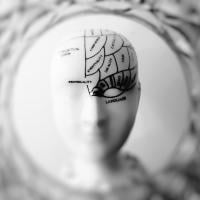Do You Use Only 10% of Your Brain?

You’ve probably heard the claim that we use only 10% of our brains. The first time I heard it, I thought, wow, imagine what we could accomplish if we used more than that. I wondered what I’d have to do to harness a greater percentage of my brain power.
I was fortunate in that I learned soon thereafter that this claim is a myth. It’s a total misconception about how the brain functions. From an evolutionary perspective, we would not have evolved such large brains if we were using only a measly 10% of them. Every part of the brain serves a function, even if not all parts are active at the same time.
It’s believed that this myth originated in 1907, when psychologist William James claimed that we use only a small part of our possible mental and physical resources and a journalist misquoted him as saying that the average person develops only 10% of their mental capacity.
The myth became ensconced in popular culture, spouted by motivational speakers, taught in classrooms, and made the premise of the 2014 movie Lucy. (With a bit of pharmacological help, Lucy gains access to the other 90% of her brain and becomes capable of telepathy, telekinesis, and other magical powers.)
But it’s not hard to understand why this myth would take hold. Who hasn’t at times wondered if we could become more productive? Who hasn’t wondered if we could do more in less time and with less effort? The reality, though, is most everyone can become more productive by following some simple tips.
For example, here’s a list of 30 productivity tips, beginning with: If it’s not totally necessary, scratch it from your to-do list. Here are 18 tips that include setting small goals and focusing on one goal at a time. And here are 21 tips, including one you’ve probably heard many times: Stop multitasking! Most of us would be much more productive if we’d just get rid of our digital distractions.
None of these tips has anything to do with how one’s brain functions. So if we hear others spout this 10% myth, we would do them a kindness to let them know it’s just that: a myth, a misconception, a false and misleading belief.
As Emory University neurologist Krish Sathian explains in debunking the myth, “We use all of the brain much of the time and much of the brain all of the time.”

